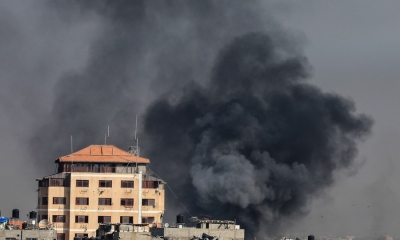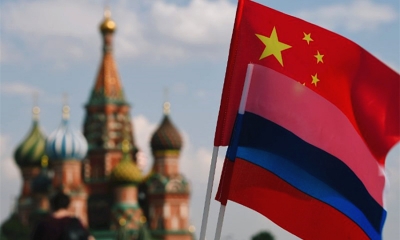BRICS Plus and a New Spirit of Internationalism
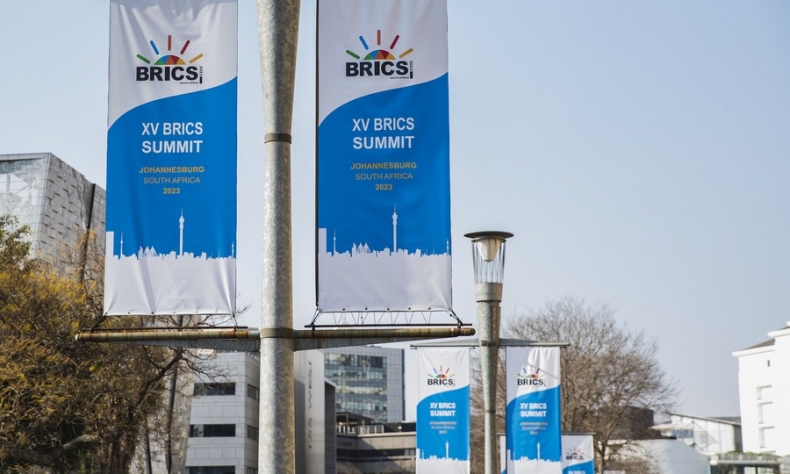
The population and economic base of the BRICS plus sets the stage for expanded cooperation and solidarity of states seeking a new multipolar order.
A new spirit of internationalism is needed more than ever as we enter a new year fraught with bloody conflicts in East Europe and in West Asia. Building a “community with a shared future for mankind” requires international cooperation and this will depend on a shared sense of solidarity.
The world today is a witness to a war in Ukraine and to Israeli atrocity in Gaza. The United Nations General Assembly overwhelmingly supported calls for a permanent ceasefire in Gaza but Washington has vetoed such efforts in the Security Council. Washington also blocks peace negotiations in the Ukraine war.
So, the perception that the United States is a destabilizing rogue state within the international system is widely shared and the United States faces increasing isolation on the world stage.
BRICS plus and international solidarity
On January 1, the BRICS formally expanded from five to 10 members. Egypt, Ethiopia, Iran, Saudi Arabia, and the United Arab Emirates were admitted as new full members. These new members add substantial weight to the association and add influence toward a shared goal of promoting multipolarity in the international system.
The primary reason for a drive toward multipolarity is the increasingly negative consequence of the U.S.-led Western hegemony. This hegemony is characterized by destabilizing imperialism and exploitative neocolonialism. So, it is no wonder that countries are seeking new patterns of mutually beneficial cooperation that can lead to a positive and constructive shared future.
Over the years, the United Nation’s role in world affairs has been severely constrained by Washington. The use of its veto in the Security Council and other measures by the United States undermines the UN’s authority and its role in promoting international law, peace, and security.
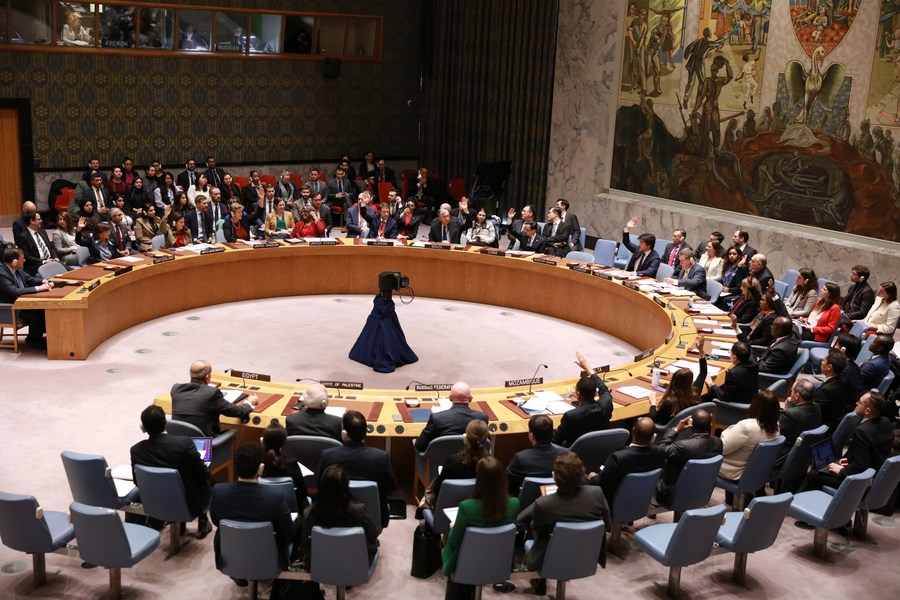
The BRICS plus is a cooperative mechanism that has been focused on economic cooperation. But, as it expands, it will have influence on other aspects of international life. For example, the U.S. imperialism depends upon the use of the dollar in international trade and as central bank reserves in the form of dollar denominated U.S. treasury notes. It is said that the expanded BRICS will focus on the dollar question and make various moves toward “de-dollarization”.
Economic growth depends on international stability, so the BRICS plus will no doubt seek ways to promote international security cooperation to this end. The BRICS plus can also coordinate with other international platforms such as the Shanghai Cooperation Organization (SCO), the Eurasian Economic Union (EAEU), and the Collective Security Treaty Organization (CSTO).
Global weight of BRICS increases
While BRICS already gained weight in international affairs, the addition of five new members brings the association to a new stage. For example, the former BRICS encompassed about 40 percent of the world’s population. The expanded BRICS now represents about 46 percent, some 3.6 billion people.
The former BRICS countries overtook the Group of Seven (G7) share of the world’s total gross domestic product (GDP) in terms of purchasing power parity (PPP) in 2020. By 2023, the difference had increased even further, the BRICS held a total 32 percent of the world’s GDP compared to 30 percent held by the G7 countries. According to the latest estimate, their GDP in PPP could reach 45 percent of the world economy in 2040, reported Bloomberg.
The expanded BRICS will account for about 38.3 percent of the total world industrial production (G7 – 30.5 percent), according to some estimates.
The picture for BRICS plus and world hydrocarbons is remarkable. The biggest impact of BRICS expansion will be on its share of global oil production which will increase to 40 percent from the current 18 percent, while the BRICS plus oil intake share will jump from 27 percent to 36 percent, according to some estimates.
Similarly, the BRICS plus share in global merchandise trade will rise from 20 percent to 25 percent, and that of global services trade reportedly will increase to 15 percent from 12.
Notably, it is estimated that the BRICS plus global share of foreign exchange reserves will rise to 46 percent.
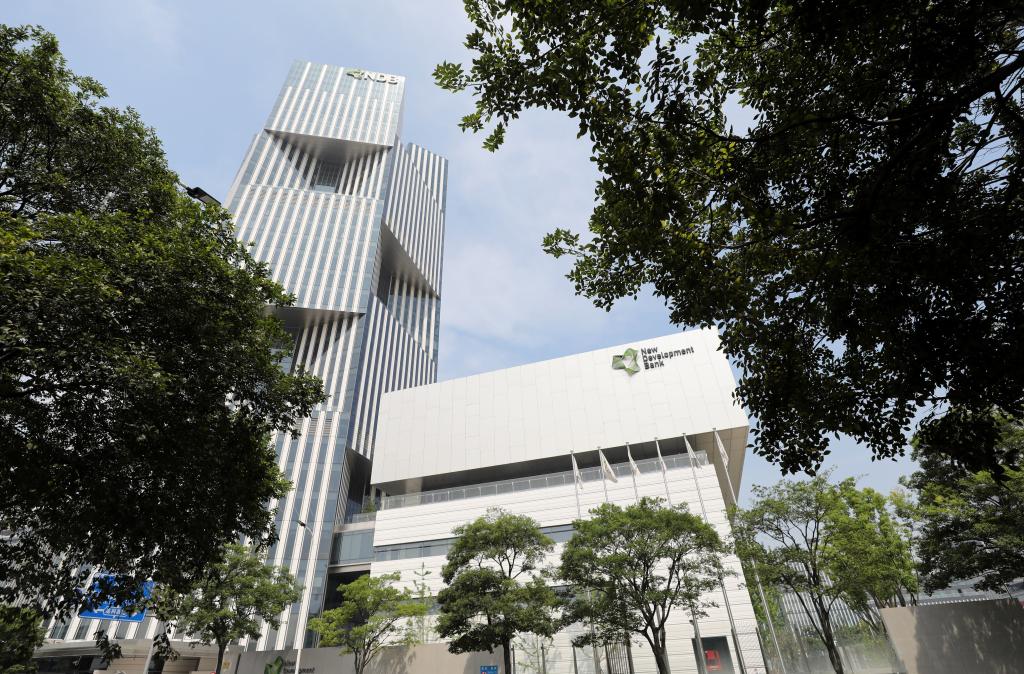
What about hydrocarbons?
The BRICS plus accounts for almost 45 percent of global oil reserves. In contrast, the G7 countries hold about 3.9 percent.
The BRICS plus accounts for almost half of world food production.
The BRICS plus has an advantage in terms of its share in the world production of metals necessary for high technologies. For example, the BRICS plus has 79 percent of global aluminum production (G7 – 1.3 percent) and 77 percent of global palladium production (G7-6.9 percent).
Additionally, the BRICS plus has about 72 percent of rare earths and three of the five countries with the largest reserves. They also hold about 75 percent of world’s manganese, 50 percent of the world’s graphite, 28 percent of the world’s nickel, and 10 percent of the world’s copper (excluding Iran’s reserves).
The BRICS plus and a shared future
The population and economic base of the BRICS plus sets the stage for expanded cooperation and solidarity of states seeking a new multipolar order. As has been indicated, this base is formidable and will strengthen as the association expands.
Some 30 countries have expressed interest in admission to the BRICS plus. These countries include: Algeria, Bolivia, Indonesia, Cuba, Democratic Republic of Congo, Comoros, Gabon, and Kazakhstan.
Although the focus has been on economic cooperation, the association will necessarily have to take into consideration the international security situation. Destabilizing wars, terrorism, supply chain disruptions, and other threats impact on economic growth and the world economy.
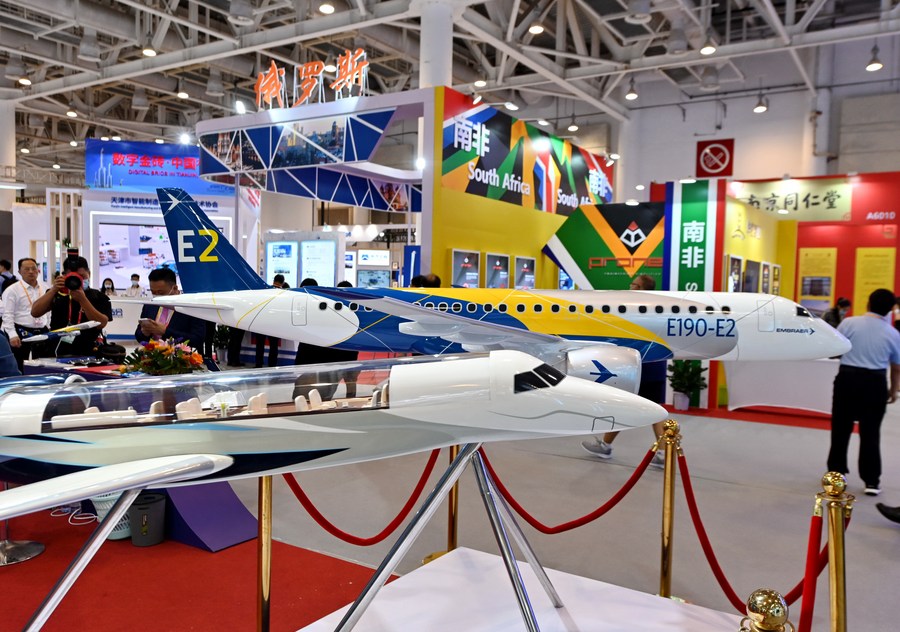
The United States and NATO hegemonism brought on the conviction of many in the international community that significant steps must be taken to ensure a future looking forward to. Further Western provocations will spur further solidarity in the Global South or, as the Russians say, the “Global Majority”.
The international community no longer can support a rogue United States wreaking havoc across the globe. As one new factor on the global stage with its increasing weight, the BRICS plus can be a force for peace and development.
Politicians in Washington seem driven by fear and hysteria about the changing world. Rather than adjust to this changing world by employing diplomacy they choose military force and bullying.
As Chinese President Xi Jinping has said, the world is witnessing “changes that have not been seen in one hundred years.”
The year 2024 will no doubt be volatile and full of surprises.
It is significant that BRICS just expanded and Russia assumed the rotating presidency of BRICS for this year. Russian President Vladimir Putin said on January 1 that the theme will be “Strengthening Multilateralism for Equitable Global Development.”
“Egypt, Ethiopia, Iran, Saudi Arabia, and the United Arab Emirates joined BRICS as new full members which is a strong indication of the growing authority of the association and its role in international affairs,” the Russian president said.
Russia will continue to promote the BRICS partnership in three key areas of politics and security, economy and finance, and cultural and humanitarian contacts, Putin said. He stated that Russia’s priorities include promoting cooperation in science, high technology, healthcare, environmental protection, culture, sports, youth exchanges, and civil society.
Washington must face this reality of a changing world. Washington must undertake an agonizing reappraisal of its foreign policy and adjust it or be left behind.
The article reflects the author’s opinions, and not necessarily the views of China Focus.
 Facebook
Facebook
 Twitter
Twitter
 Linkedin
Linkedin
 Google +
Google +






